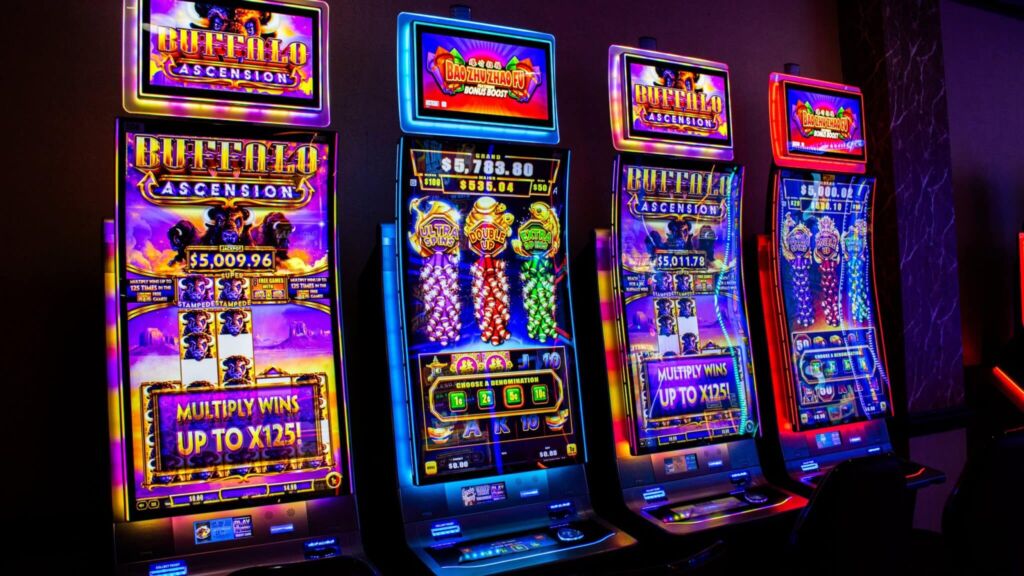Casino gaming has seen tremendous changes over time, evolving significantly in game mechanics and technological advancements. From traditional casino tables and slot machines to cutting-edge virtual platforms and live dealer experiences, this field has continually innovated to align with current trends and player desires. This narrative delves into the intriguing development of casino games, exploring their historical growth, current state, and potential future.
Early Beginnings of Casino Games
If you trace back through history, you'll find that casino gaming's roots extend across centuries, predating modern betting establishments. Many classic games we recognize today evolved from ancient cultures, with early gaming practices evident in civilizations like those of China, Egypt, and the Roman Empire.
The Origins of Card Games
Among the oldest and most cherished types of casino games are card games. Historical beliefs suggest that playing cards originated in China during the Tang Dynasty (618–907 AD) and later made their way to Europe by the 14th century, eventually forming the suits and ranks we know today. Initially, card games were straightforward and enjoyed by both nobility and the general populace.
The initial casino is believed to have opened in Venice, Italy, in the late 15th century, featuring games such as faro, a widely favored banking game. This marked the beginning of casino culture in Europe, which eventually spread to the United States.
The Birth of Modern Casino Games
During the 17th and 18th centuries, various forms of gambling emerged, laying the foundations for contemporary casino games. Notably, roulette came into existence in France in the late 1600s and swiftly gained popularity across European casinos. Similarly, what is now known as blackjack began its development as '21' in France during the 18th century.
With the emergence of organized gambling, a plethora of new table games began to surface. Poker, introduced to the United States in the 1860s, quickly surged in popularity and is now considered one of the quintessential casino games.
The Rise of Slot Machines
The Birth of the One-Armed Bandit
The slot machine concept traces back to the late 1800s when Charles Fey created the first mechanical slot machine in 1895. Known as 'The Liberty Bell,' Fey's design included three reels decorated with symbols like bells, horseshoes, and cards. Gamblers inserted coins and pulled a lever, hoping the reels would align to reward them with a payout.
Slot machines quickly became a hit in America, and by the 20th century, they were a staple in casinos, drawing in gamblers with their simple yet rewarding nature. These one-armed bandits became an iconic image of modern casinos.
Technological Breakthroughs and the Era of Video Slots
The 1970s and 80s marked a shift to video slot machines using electronic displays to offer more intricate gaming experiences, larger jackpots, and innovative features. The application of random number generators (RNGs) introduced more unpredictable results, amplifying the thrill for players.
Nowadays, the advent of online casinos has drastically transformed the slot game landscape with virtual machines boasting impressive visuals, bonus rounds, and ever-growing jackpots. These enhancements have sparked enthusiasm and accessibility, engaging players with themed experiences inspired by films, series, and cultural phenomena.
Online Gambling: The Digital Game Changer
The Advent of Online Casinos
The introduction of the internet in the mid-1990s spearheaded a transformative shift in gambling, heralding the rise of online casinos. The launch of InterCasino in 1996, offering games like blackjack and slot machines, paved the way for players to enjoy gaming from their homes, veering away from traditional land-based establishments.
Online platforms expanded gambling opportunities, presenting players with diverse games and betting preferences. Beyond established table games, online casinos introduced video poker, craps, and new game variations, all accessible with the click of a button. The convenience alongside enhanced graphics and gameplay has made these virtual sites a preferred choice for gamblers worldwide.
Mobile Gaming Takes Over
The rise of smartphones and tablets has drastically influenced the gambling sector. Early in the 2010s, mobile gaming surged, allowing enthusiasts to play casino games on the move. Mobile-friendly apps and websites ensured gamers could enjoy their favorites seamlessly, with touch-screen technology refining the user experience.
Players, no longer confined to desktops, could embrace the dynamism and ease of mobile gaming, bolstering the industry's growth and appeal.
The Rise of Live Dealer Games
The Rise of Live Dealer Casinos
As technology progressed, online casinos sought methods to recreate the ambiance and thrilling vibe of physical casinos. A key advancement in the millennium was introducing live dealer games, where real dealers manage actual casino tables, allowing player interactions via a live-stream video feed.
This transition enabled online platforms to offer games like live blackjack, roulette, and baccarat, replicating the real-time betting found in land-based casinos. Incorporating live dealers reintroduced the social dimension of gambling online, providing a more genuine and immersive play.
The Technology That Powers Live Dealer Games
Sophisticated technology underpins live dealer games, using multiple cameras, real-time video streaming, and advanced software. Dealers, trained to professional standards, oversee the games while player interactions occur through live chat features. Integrating RNGs with optical character recognition (OCR) ensures fair, accurate bet processing, delivering a seamless digital experience.
Live casinos have grown considerably over the last decade, offering various tables for beloved games and unique formats designed for live streaming. This progression continues to shape the future of online gambling.
The Future of Casino Games
Embracing Virtual Reality (VR) and Augmented Reality (AR)
Virtual reality (VR) and augmented reality (AR) promise to redefine casino gaming, allowing players to engage with games in revolutionary ways. VR technology envisages users exploring 3D environments reminiscent of real casinos, interacting with dealers, navigating gaming floors, and chatting with peers—all within a comprehensive virtual setting.
AR could transform gameplay by layering digital overlays onto actual environments. Picture playing poker with virtual cards appearing before you while relaxing at home. These technologies have the potential to fundamentally change how we approach and enjoy casino gaming, merging the exhilaration of real-world casinos with digital innovation.
Blockchain and Cryptocurrencies
Within the online gambling domain, blockchain and cryptocurrencies are paving the way as transformative trends. Blockchain maintains transparent, secure, and decentralized transactions, minimizing fraud risks and ensuring fairness. Cryptocurrencies such as Bitcoin and Ethereum are becoming mainstays in online casinos, offering rapid operations, reduced fees, and enhanced privacy for players.
Looking ahead, casinos are likely to further integrate blockchain and crypto solutions, offering players even more seamless and secure transaction methods for deposits, wagers, and withdrawals.
Gamification and Social Features
Gamification and social elements represent another forward-looking trend for casino gaming's future. Many online platforms already implement features like loyalty programs, tournaments, and challenges to boost player engagement. As we move forward, casinos might amplify this with team competitions, achievement systems, and interactive elements, fostering a more community-oriented experience.
Conclusion
Tracing the evolution of casino games is a captivating journey, stretching from their ancient origins to today's high-tech, immersive experiences. Be it the progression from physical venues to online environments, the dawn of live dealer games, or the potential VR and blockchain hold, the casino industry consistently leads in innovation. As technology advances, we can only anticipate the exciting future that lies ahead for gaming enthusiasts, knowing that casino games will continue to evolve, offering fresh and thrilling experiences.



